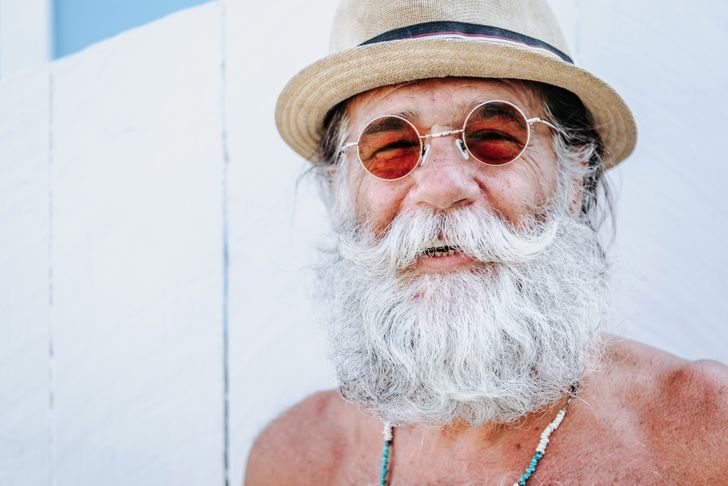Education is essential. The future of education is in the hands of our future teachers of color. What do they have to say about education, the educational system, and their roles as educators?
What is your full name?
Emma Caro
Dan Nguyen
What’s your background?
Emma: I’m a Mexican woman. I use she/her/hers pronouns. I’m straight, and I am 20 years old.
Dan: I am a first-generation Vietnamese-American queer man. My pronouns are he/him/his. I am 21 years old and I come from a middle-class family that began as a working-class family.
Why do you want to be a teacher?
Emma: I believe that students are the future and I want to be able to help students in ways that they aren’t being helped currently so that they can thrive and believe in themselves like I believe in them.
Dan: Growing up in school, especially in the music classroom, I found it was a great way to meet people within my community and get different role models from adults that I trusted. So, I really wanted to become a teacher to give back to the community that gave so much for me and to create that sense of community for my students within my classroom and to incorporate that throughout the school itself.
What educational field will you be entering?
Emma: I want to work in elementary schools, I wanna say second to fifth grade. I like the older grades; younger grades, they’re cute, too. I want to serve in an area that I would be using what my degree is specifically targeting toward — ELL students, underrepresented populations, students of color.
Dan: I’m going to become a music teacher, certified kindergarten to 12th grade. I mainly want to work in the secondary setting, so either middle school or high school band.
At what point in your life did you realize you wanted to be a teacher?
Emma: I feel like I’ve always known. I’ve been really influenced by my teachers since a young age, just because I was in school a lot, living with a single mom, and my teachers were my role models. They believed in me, so I want to believe in others like they believed in me.
Dan: I knew I wanted to go into music probably in the middle of my freshman year of high school, but the reason I wanted to be a teacher has sort of developed over time. Originally, I wanted to go into music and to go into teaching because I wasn’t good at anything else. I was terrible at math, terrible at science. As I started going through junior and senior year of high school, I made more connections through teaching. I was able to step into a leadership role with my own color guard team, and so getting that hands-on experience made me realize how influential teachers can be and how rewarding seeing growth in people either of your same age or younger can be. Around ninth grade is when I first discovered it, but I didn’t come to terms with why I wanted to go into teaching itself until junior year of high school.
What effect did your background have on your decision to be a teacher?
Emma: I feel like everything is interconnected and no one thing is independent from another. It affects where I was living, the schools I was going to, the teachers, the populations of the schools, and resources — it all very much depended on who I am as I person.
Dan: It didn’t have much of an effect when I was in high school, but definitely starting college, and taking more education and more music education classes, it's affected and empowered my position to become a teacher a lot more.
Did you have bad teachers? Have you had good teachers?
Emma: There is this one teacher that, I think, is the reason I want to become an elementary school teacher. He was like a father figure in a sense. He would help me before and after school; we’d work on things together. He was the one who believed in me and it felt nice, the recognition from someone. Other teachers, I feel like once I got older, teachers just started caring less. They were still good, but they tried less. I’m sure they still care about their students, but it’s harder to empathize with those students because they're more closed off to the teachers; you have to try harder with those students. And sometimes when you’re not an adequate teacher then you don’t try hard enough.
Dan: Yes. I would say so. Most teachers, if I did not like their teaching, it mainly was less so on how they approached teaching their content and more so their approach to classroom management and the culture that they created in their classrooms. Sometimes classrooms were not necessarily hostile, but I didn’t feel safe speaking in them without fear of being judged either from the teacher or from my classmates where I knew the teacher wouldn’t step in. Any teacher who lacks passion was not a very good teacher in my mind. I don’t expect every teacher to be outwardly enthusiastic about their content but it's very obvious if their heart isn’t in it. And not necessarily just their content, but if their heart isn’t in the principles of teaching — like, teaching for the sake of people learning and regurgitating information really threw me off, rather than teaching through your content and encouraging students to be critical thinkers on that deeper level. I’ve had wonderful teachers. Good and great teachers exhibit all the opposites of a bad teacher, but for me, a good teacher is someone who is in the profession to positively impact and empower students’ lives. I’m big on helping students become deeper thinkers, giving students skills to become thinkers themselves, and to become lifelong learners. Any teacher that instilled that virtue in students was a good teacher to me.
How do you feel about favoritism that teachers may display with their students?
Emma: It still happens, even elementary schools. I think it’s just an implicit bias that people have sometimes, they truly don’t mean it. But I think when you’re really struggling with the students, it's hard to not be upset, so I understand where they’re coming from. I personally haven’t seen it recently, but that would be scary. That means that teachers aren’t ready to be teaching their students. I know that it happens. Teachers get mad that students aren’t doing what they’re supposed to, so they deem students problematic.
Dan: I definitely believe that every teacher has their favorite students. It’s a thing that can’t be helped. But what can be addressed is the way they go about that favoritism. I think outwardly showing your favoritism is very toxic in a classroom environment. It immediately sets sort of this hierarchy within the classroom and that’s something, especially with my own teaching, that I want to break down between the teacher and the students. It causes a lot of problems. It’s beneficial to the students who are the teacher’s favorites, but your job is not to teach those select students. Your job is to teach all students who step into your classroom. I view favoritism as very problematic. It’s up to the teacher to be introspective with themselves and understand that they have a bias inside them and to work around that bias so that all students have the same amount of effort from you.
What are some goals you have as an educator?
Emma: I’ve been thinking of doing bilingual immersion schools. That’s kind of why I want to work with older students, because with them you’re able to hold conversations about society. You want to talk about these issues right away. Even with younger kids. Thanksgiving is coming and how do you do that in the classroom without being culturally insensitive? You have to be aware and let the students know that you’re aware.
Dan: A big teaching goal of mine is to find a different approach to teaching music, especially in secondary settings, that is less of the teacher just standing in front of the room, rehearsing music for the sake of learning the piece. My main goal is to first get to know my classroom and to get to know my community, so, if I have a high population of a certain culture, I can find ways and pieces that those students can find themselves in. So, not necessarily just within their culture but finding pieces that have their roots in a certain virtue that a student might find themselves in, or a certain story that a lot of different students can connect to, and use those pieces to help my students understand who they are a little bit more.
What’s your goal with that approach, Dan?
Dan: It’s mainly to diversify music more. And by diversify, I mean having the students know music is a lot more than old white dudes in the 1800s and 1700s, and either playing music from women, people of color, non-Western music. Those are my steps to work toward that method; my ultimate goal is to instead of music always being this sterile, old white tradition that students just play their music, is to have them understand that music is, and can be, a part of their lives that is more than just sitting in a concert band. And that they can find things, there are so many, that they can identify with.
What are your opinions on teachers of color?
Emma: First things first, we need to get more teachers of color. Every school I go to, teachers are great but it’s all white. I would also want to become an administrator at some point so that I can start making the change because sometimes teachers can’t create enough change because they don’t hold the power — like a principal. With teaching, you work with a group of teachers and I would just try to make sure we are incorporating things that are for individuals and their cultures and their identities.
Dan:I think that teachers of color are extremely important, especially nowadays with the population of America becoming more and more populated with people of color. It’s very important for all students to have someone that they can look up to. The role that teachers of color play is they provide that role model for students who in the past have not had anyone to look up to. It’s important to have someone who speaks the same language as you, or is at least the same color as you, or of color in general, to look up to. With mainstream media, everything is very tailored to the white audience, and so these students often don’t ever see people of color successful in their careers, they only see white people that are successful in whatever career they want to go into. So, I think teachers can show that people of color can be educated, people of color can be in a leadership role, people of color can pursue other careers that students might not have thought of. I think it’s a big matter of representation. I think teachers of color have a big role in advocacy for schools, especially schools in cities with high minority populations. I think it's really big to fight for funding for our students while two miles down the road, in the white part of the city, they have all these resources because of the funding. So, being an advocate in a way that some white teachers can’t be.
What are some improvements that you’d like to see in the U.S. education system?
Emma: Oh, do you have time for a long list of a million things? Resources! Money! That’s all it comes down to really. But that and so much more. Students get resources depending on where they live, so not every student gets the same resources. In my high school, every junior had to do the PSAT, so we at least had some preparation for the SAT for senior year. In the school that I’m working at in Mount Vernon, the PSAT is optional, and most kids, by the time they take an SAT, they’ve never even opened up a practice book, much less a practice test. So, it’s all about money. Our school did it because they got the funding for the test, but other schools don’t. It’s hard to make everything equitable.
Dan: The way we fund our schools needs to be reconsidered. I know some school districts are trying to move away from this model, but most of the time besides federal, state, and local funding, schools are powered through property taxes of their attendance boundaries. Oftentimes this leads to a really big inequality gap between schools with more affluent houses — if we think in Seattle, the Queen Anne area, the Ballard area, have really high value, so they can pay more property taxes. Whereas schools in the Rainer Beach area don’t get as many resources, even though both high schools provide the same amount of classes for these students and the ultimate goal…they share, which is to help our students become better people. That is a big flaw in our education system. Another thing U.S. education can work on is addressing the biases in which we teach with. If we think to history classes, we learn about U.S. history that affects the white Americans and a lot of times with that lense, the accuracy of which we cover historical events can be shrouded.
When you tell people you want to be an educator, what are some things that you hear?
Emma: ‘Oh, that’s cute!’ It’s so condensing. No, it’s not cute! It’s hard work. Or they say, ‘it doesn’t have good pay.’ Other people are like, ‘oh, good for you.’ I don’t know what that means; I try to take it as a positive.
Dan: I hear a lot of language that I wouldn’t say is dismissive but is sort of like, ‘Oh, that’s so cute.’ Or, ‘Why do you want to work with kids? They’re terrible.’ Or, ‘Do you know that you’re going to be poor for the rest of your life?’ It’s interesting because I don’t think any teacher is going into it for the money. We all know that teachers, especially in America, are very underpaid and overworked and that’s the reality of it. But we have people still going into education because we’re in it for the kids. So, it’s a lot of phrases like that. It’s also going into a field that has a professional level of career; it’s a lot of, ‘oh teachers teach because they can’t do.’ It’s like no, I never wanted to be a professional flutist in a symphony, I want to be a music teacher. I think especially in the music realm, there’s a big misconception that music education personnel aren’t as musically talented as their professional counterparts. Especially at the college level, it’s like, ‘Oh, music education majors don’t want to practice, don’t put their heart into playing rather than teaching.’ You can sort of see that misconception through other careers, ‘Oh, you don’t want to be a researcher but you want to teach science.’ It’s completely different.
What goes into teaching? What are some things that the general public doesn’t recognize about this profession?
Emma: As an elementary school teacher, you make the plans — starting in the morning until the afternoon, in all subjects that you’re supposed to be teaching. And, you can’t just teach to teach. You have to teach so that your students understand you. So, if they don’t understand you, then you have to fit the lesson so that they can understand. It all very much depends on the individual; it’s not like you can repeat the same thing over and over again. I think that’s what people tend to do as you get older, like middle school, high school, college, they just repeat the same thing over and over again and you don’t differentiate depending on the student. And they don’t give you the things you have to teach. They tell you they need to know this, this, and this. So, you teach, you come up with the stuff. Also, that it’s easy because it’s just kids.
Dan: Speaking from a music education standpoint, I think a lot of people specifically think of teaching music as ‘oh, you get paid to sing and dance with my kids and then you get to go home.’ Most teaching is not teaching something and then going home. Teachers never leave their work. When they are home, they are planning for the next week, the next day. They’re putting in their own money for their classrooms. I know most elementary school teachers, if they did not put any of their own money into decorating their classrooms or even basic supplies for their classrooms, it would be…a shock to most parents if they come in and visit and how it would look if the teacher didn’t provide anything. So, a lot of your own personal time and money. And a lot, a lot of paperwork. Since being a teacher means you’re “in charge” of these students, there are a lot of expectations of, unfortunately, tracking students and their progress. Tracking students in standardizing testing.
Are there any misconceptions within the teaching community that need to be addressed? Are there hierarchies?
Emma: I don’t feel like I’ve experienced that, no. I think that also depends on males. There aren’t many males teaching in elementary school. All my classes are 98% women. It’s not common for men to want to be elementary school teachers because of the younger grades, younger students.
Dan: I think for the most part teachers understand how difficult our work is, regardless of subject area and regardless of grade levels. I know that, sometimes, core teachers view the elective teachers, not necessarily as below them, but that they don’t go through the same things that other teachers go through. But, I think for the most part, teachers have a big appreciation for each other. A lot of my secondary teachers have a big respect for elementary school teachers.
Does elementary school teaching require more emotional work, Emma?
Emma: Yes, exactly. And I feel like it’s stereotypical that a woman is ‘more caring and more motherly,’ hence being better teachers.
How do you feel about there being fewer men present in elementary schools and why do you think that is so, Dan?
Dan: I think the reason why there are less men in the field and, if there are men, the public believes that they are gay, is based on centuries and centuries of socialization and imposing gender roles onto each career. If we say 'nurse,' the first thing that most people think is a female nurse. If we say 'doctor,' it’s the opposite. If we say 'teacher,' we always almost picture a middle-aged white woman. It’s a lot of socialization. And, a lot of men don’t go into teaching elementary because society as a whole believes that elementary is easier than teaching higher levels.
Is there a white savior trope when you have a vast majority of white teachers?
Emma: Not at all. As much I know, as a person of color, that race affects everything, I think if you look up to someone, it doesn’t matter what race they are. It matters what they did for you and how they affected you. I think that just takes away from the mentoring aspect, and I think it shouldn’t matter in cases like this. It’s more if they were gaining something out of it.
Dan: I can see potential crossover if, let’s say, a white teacher wants to go into inner-city school districts with high populations of color to ‘help them, they’re so in need.’ I know in other inner-city school districts with high populations of minorities, they don’t have the privilege of having a lot of teachers of color and they do just still have a bunch of white teachers and a lot of times those white teachers are less qualified, because, unfortunately, people don’t want to teach in the city. So, I think that could definitely be a potential issue, but for the most part, teachers who are white don’t go into teaching to help save populations.
What are your opinions on the school to prison pipeline?
Emma: It outrages me. It makes me completely angry. There’s no reason why it should be happening, but it still is. And the reason is because of that same system of oppression that this country has been built on. And how do you reverse that system of oppression is what I struggle with on a daily basis. This is why you want to become a teacher, because you’re trying to make sure the students aren’t putting these conceptions, these ideas of themselves as who they will be based on what they look like or where they live. Going to school is more the relationships you create with the school systems than what you learn.
Dan: I think there is a lot more that goes into it than people think. Sometimes the general public will be like ‘well, these kids just aren’t going to school because blah blah blah,’ or ‘just because they’re *insert social group here*, they don’t value education.’ ‘They join these gangs and they do these drugs and blah blah blah.’ I think it’s more of a theme, going back to representation, of having, in the past, teachers that don’t see value in them rather than them seeing value in education. And so, I think a lot of times it's teachers that write off these populations that end up going through that pipeline that causes and perpetuates that and society going along with that and always putting the blame on the students rather than one the system itself or the teacher themselves. It’s unfortunate that that is a continuing cycle and definitely something that needs to be addressed on what about the way we’re teaching students isn’t working for schools and for teachers within that school to prison pipeline. How can we radically change it so that we can begin to dismantle this system?
What are your thoughts on our Secretary of Education, Betsy DeVos?
Emma: I think it is completely ridiculous that Secretary of Education is Betsy DeVos. She has no idea what a public system even looks like. She doesn’t understand education and how it works because she hasn’t been exposed to the most common types; she mainly has experience with private education. She’s the least experienced person for this job. She, somehow, wants to give more money to private education, but public education is where funding should be at.
Dan: It’s unfortunate…to see that she has lost hope in public education. Either through being socialized from her parents and her own personal experience of going through private schools. Its unfortunate, and I’m always curious on how that came about; I almost feel…I guess I don’t feel bad for her for not getting that good of public education, but it’s unfortunate that her experiences haven’t shaped her to support public education. She is highly unqualified to hold that position: never being a teacher, never holding any position within education, not even being on a board of education, at all. She embodies the mindset that education is capitalism. If she was a teacher, those students wouldn’t be the number one priority. I think…there are a lot of ties that she has that aren’t…around helping our students and education as a whole grow. I think it's selfish for her to even accept the nomination and become our secretary of education because she…because she’s trying very hard to dismantle a system that already is in such bad need of repair and it’s unfortunate because it’s the building blocks of where our country is going to, funding public education, funding the children and the young people of our nation. I just don’t think she holds the values that anyone in education has.
I know I asked this earlier, but it is such an important topic. What are some changes that you hope to see in your lifetime in the U.S. education system and in our schools?
Emma: I hope kids aren’t stuck in this very structured school system where they just keep slipping through the cracks. I hope they like school, because school is doing a service to them. That’s also why it’s so hard to be an educator — you don’t want to just teach them random things, you want to teach them about the world. I understand why people hate school. I just want education to be something that’s worthwhile for the students, and it should always be about the students, what they’re getting out of it.
Dan: I hope to see more investment into public education, and public education specifically. Through all grade levels and even in higher education, as well. I would definitely want to see teacher salaries being reflective of how much of an impact they have on the future of our nation. Also, pedagogically, I want to see more teachers who teach less from a lecture style — less so of a 'learn this thing, memorize it, forget it,' less so of that banking method of education — and allowing students to have more of a voice in the classroom, to allow students to grapple with the concepts in the classrooms, rather than teaching for a test. Because a lot of times teachers do want to step out of the boundaries and to engage the students more, but they’re also expected, and a lot of times their compensation and their retention is all determined through how well students do on tests. It’s really hard; I hope in the future we move away from standardized assessment and move toward more progressive assessment, how well a student is doing not by grades, but by acquisition of knowledge. Which is very different, because you can pass a test if you don’t know the material but you can’t explain the material and work through the material if you don’t know it.
Do politics belong in schools? Do they belong in education?
Emma: Absolutely! I was just talking about this with some of the girls in my class. I think that it’s hypocritical of us to even try to keep politics out of the class because politics influence what we do inside the classroom and the students’ lives outside of the classroom, so they matter. These decisions are being made in our society and we should talk about them and the students need to know about them. And yeah, they need to form their own opinions so it should never be presented in a biased way, but how do you not have a biased way when you’re talking about Trump? You know he’s not qualified and you can’t see a way where — well, I can’t see a position where I would think he was ever qualified. But there are people out there who do think so, it’s just not my truth. It’s hard, definitely, because everyone is afraid to say it. But, as a person of color, I have to. I feel like it’s why I’m in the schools, so I’m not as scared as other people. But, I feel like people are scared, definitely in education. And that’s kind of what they tell you to do, don’t bring your opinions into the classroom, but it very much matters…to at least bring up the conversation. I don’t think you have to form an opinion in front of the kids, because I do think your opinions also will affect the kids'. It just depends, like when it’s something completely ridiculous, like Trump.
Dan: Politics shape what we teach. And so, inevitably, it will always play a role in education. Should it belong? It depends on what your definition of politics is. If politics is government influence in education, then it’ll always be there. But, it confuses me when there are differences between the two main political parties in the States in what we want out of education. In that way, I think politics shouldn’t belong in education, because we should all be working toward educating our students and making sure that students have the same amount of opportunities as everyone else. But to get that funding and to work toward funding education, unfortunately, teacher advocacy organizations have to almost align themselves with one party or another, or appease to these parties who end up being in charge of the budget. The Department of Education is a part of the U.S. government and the U.S. government is run by a party. And so, politics will always play a role in education, which I think is counterproductive because we should work toward the same goal, but things aren’t like that.
Are we doing enough to support LGBTQ+ students? What can educators do better?
Emma: First of all, gender-inclusive language, the way we talk to students. 'You all' instead of 'you guys.' Instead of saying 'boys and girls,' say 'fourth graders'...things that don’t already set up the rules for them.
Dan: I would say no. I think school policies have been rewritten to be more protective of the rights of these students and to protect their right not to be bullied, not to be harassed within schools. And things are starting to change with introducing gender-neutral bathrooms into schools and into public spaces. Again, it’s a matter of representation. I don’t believe that teachers who are queer have to be outspoken about their sexuality but it definitely plays a big role in role models for these LGBTQ+ students to see, again, a successful adult that they can relate to. It can cause a lot of controversy because a teacher being public about their sexuality can be seen as political, some may say against someone’s certain religious beliefs. It goes along the same lines of accurately teaching history and accurately teaching LGBTQ+ history and incorporating queer literature and literature written by queer authors. Curriculum is still very heterocentric. But, I definitely can see pushback from parents and boards about incorporating more influential LGBTQ+ curriculum because it is politicized, even though we already have policies set in place to protect these students. Taking that extra step into accurately educating these students on a part of who they are would seem like the next step we’re heading toward. That next step. There’s that political barrier, even though we already have in place protections for these students and recognition of these identities.
Any closing remarks?
Emma: There’s so much I want to say about education, there’s so much hope to it. As an educator, you want to teach these students to have these relationships with one another and all these life skills for the betterment of society and community. And you just want the community to grow, and sometimes it’s hard, but I think that’s why I would want to do it. I want to serve communities and be part of these communities and watch them thrive. And, I tweeted this one time, that I just want to give all the brown little kids all that they deserve in ways that I can. And I feel like teaching is the way that I can, because they face so many things in their lives, it’s so hard. They deserve to see a better world and they can create this better world. They’re so much stronger because of what they faced and you just want to keep on pushing them so they do the best that they can do and be the best that they can be. This is my way of fighting the oppressive systems; I’m fighting them within education. Also, it’s always gonna be about the students; they’re the future. And, kids are awesome! They have so much to say and learn, and it’s amazing, you just see it in them. You were once that child, I was once that child, we all were.
Dan: If I have anything else to say, it would be for future teachers and current teachers to always remember that the work we do is for the students. Everything we put into our work — all the effort, all the money that we put into what we do — is so that our students can be successful in the future. Not only in our content area, but as good outstanding citizens of the world. In the end, teaching isn’t about educating students on math or science or music, it’s about creating a better community and a better world through values that we learn by being in school.

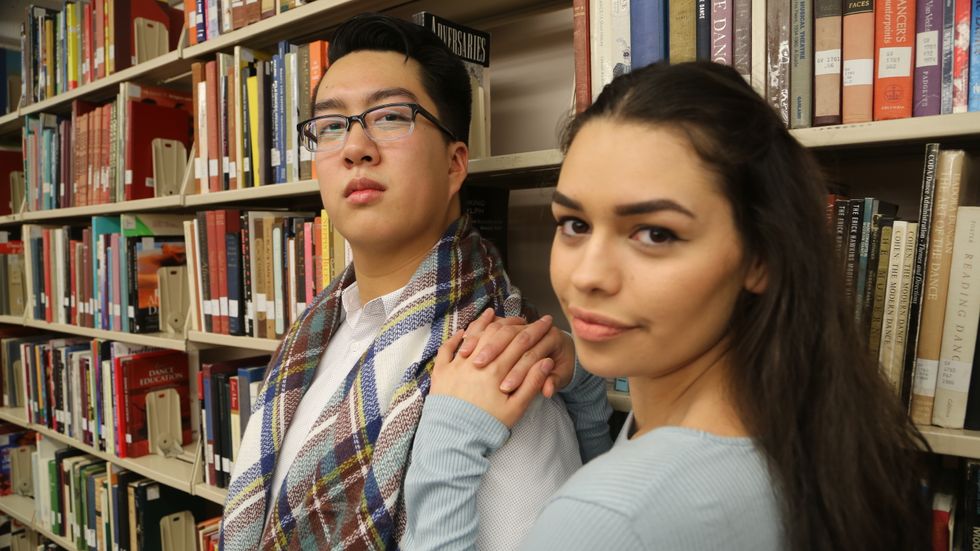
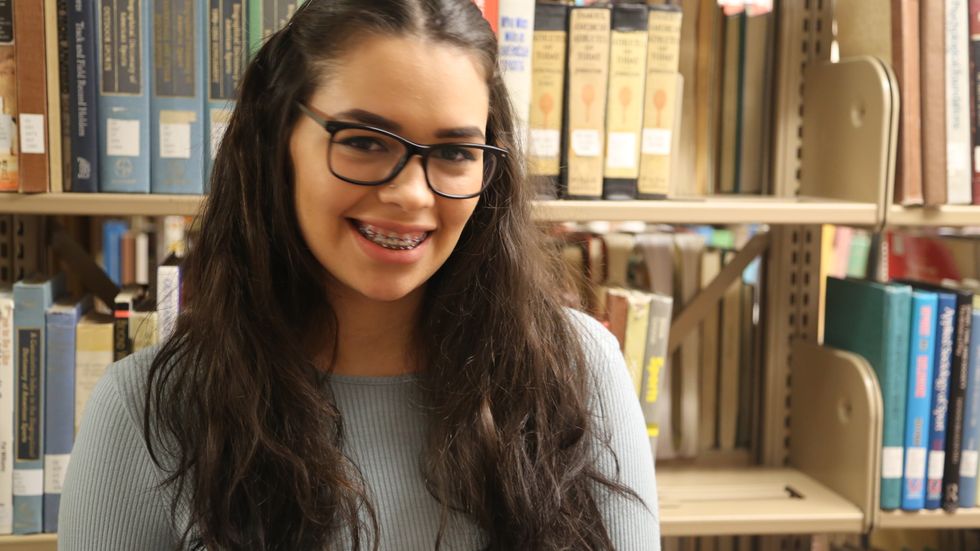
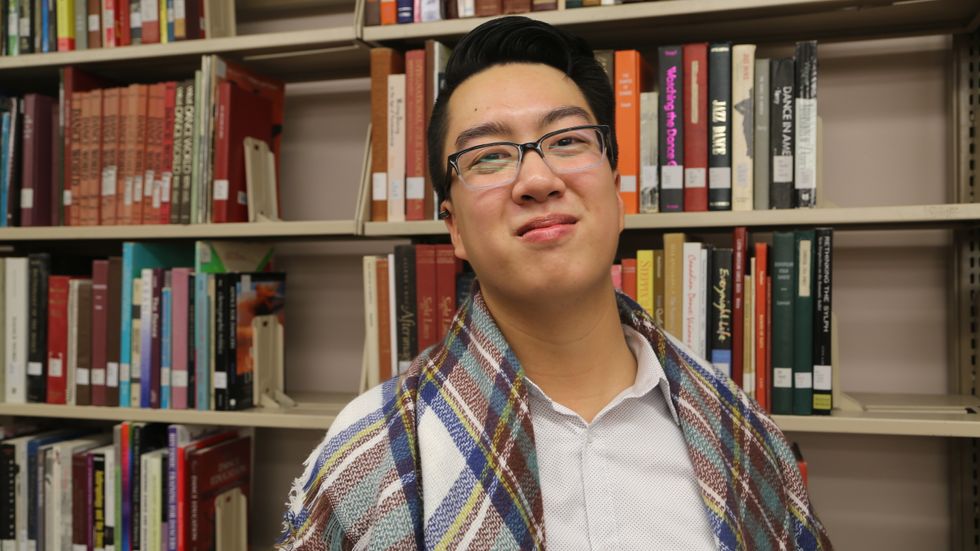
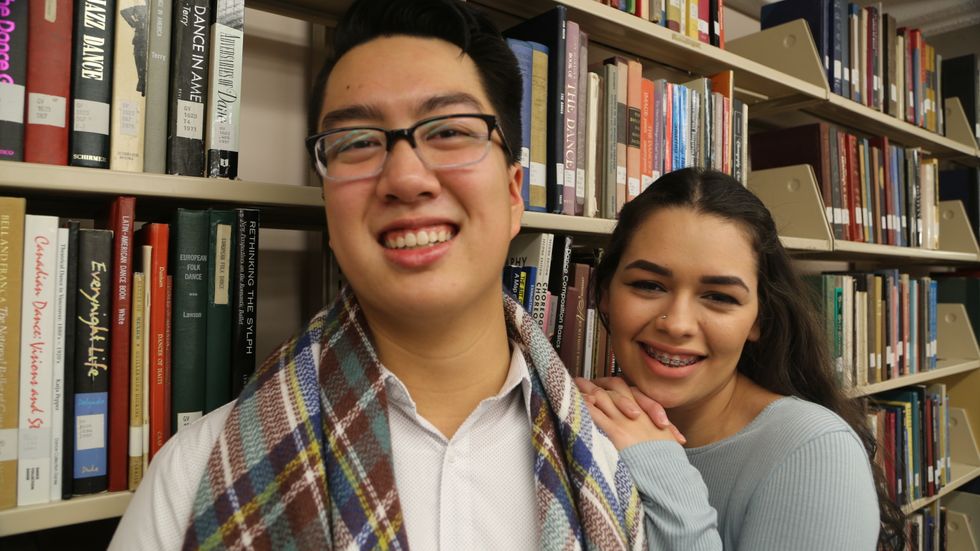
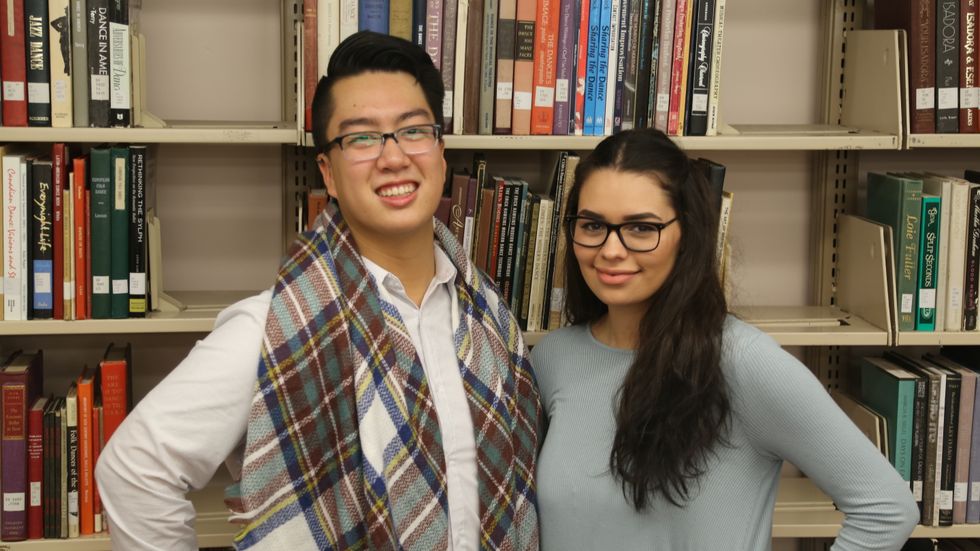
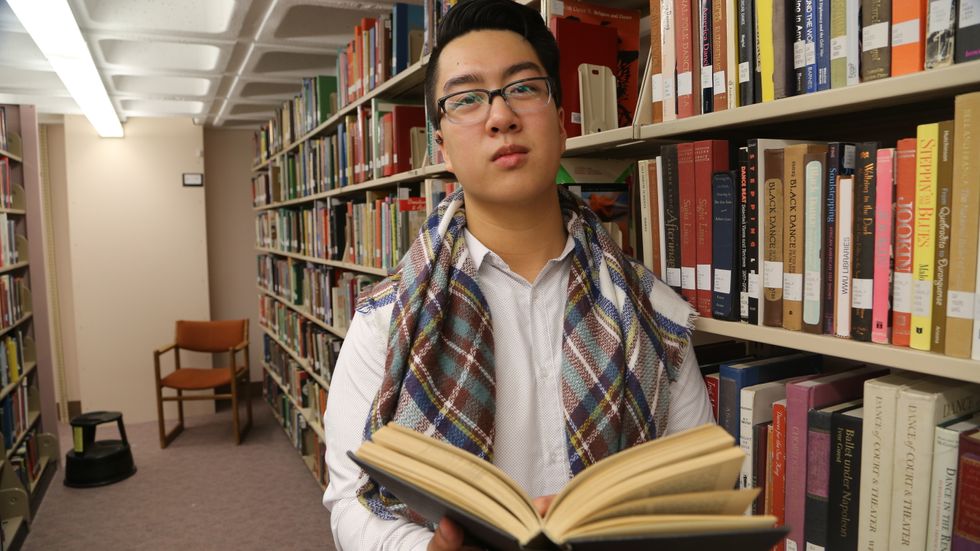
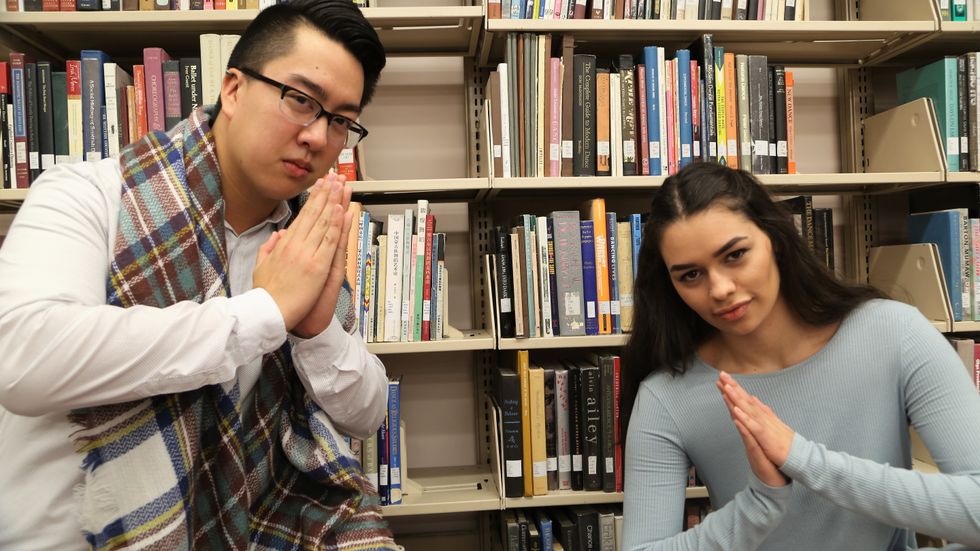
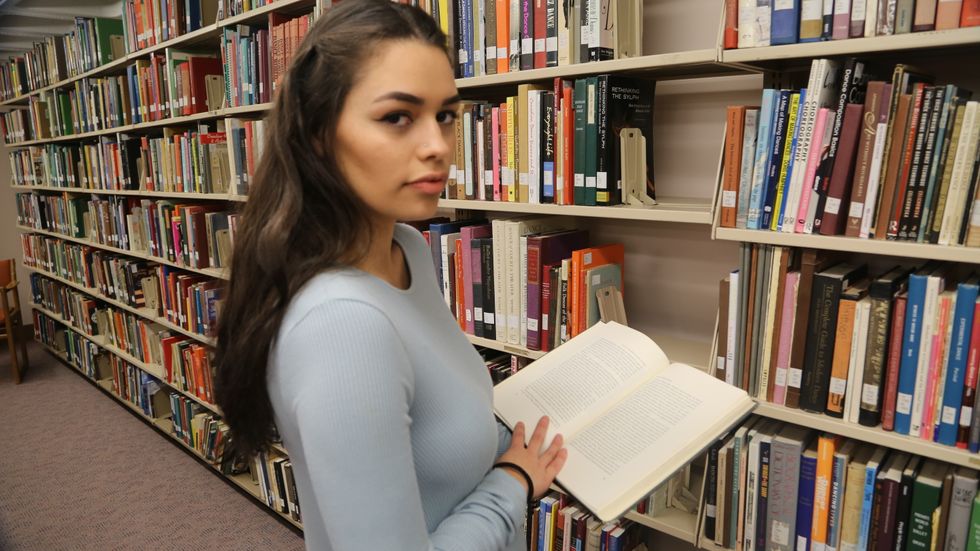
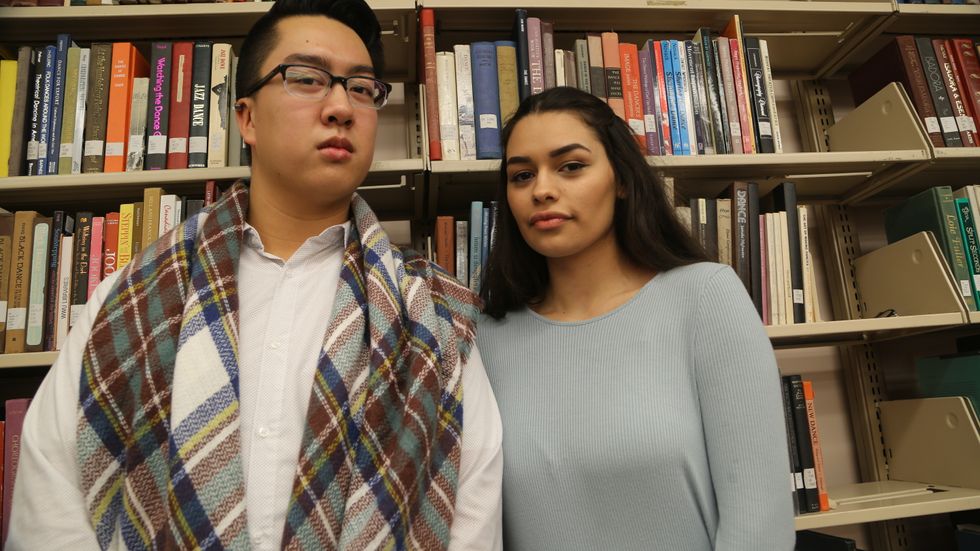
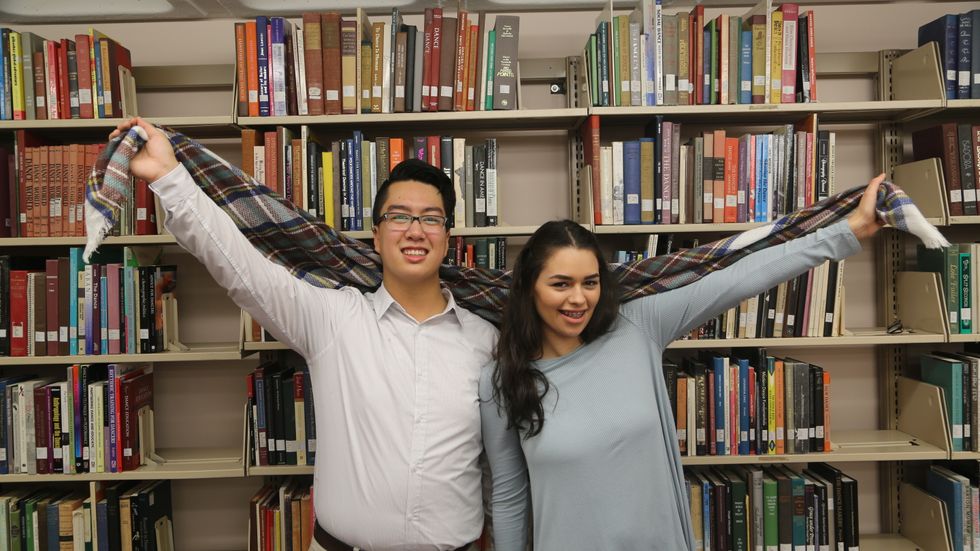

 Photo by
Photo by  Photo by
Photo by  Photo by
Photo by  Photo by
Photo by 


 people sitting on chair in front of computer
people sitting on chair in front of computer



 all stars lol GIF by Lifetime
all stars lol GIF by Lifetime two women talking while looking at laptop computerPhoto by
two women talking while looking at laptop computerPhoto by  shallow focus photography of two boys doing wacky facesPhoto by
shallow focus photography of two boys doing wacky facesPhoto by  happy birthday balloons with happy birthday textPhoto by
happy birthday balloons with happy birthday textPhoto by  itty-bitty living space." | The Genie shows Aladdin how… | Flickr
itty-bitty living space." | The Genie shows Aladdin how… | Flickr shallow focus photography of dog and catPhoto by
shallow focus photography of dog and catPhoto by  yellow Volkswagen van on roadPhoto by
yellow Volkswagen van on roadPhoto by  orange i have a crush on you neon light signagePhoto by
orange i have a crush on you neon light signagePhoto by  5 Tattoos Artist That Will Make You Want A Tattoo
5 Tattoos Artist That Will Make You Want A Tattoo woman biting pencil while sitting on chair in front of computer during daytimePhoto by
woman biting pencil while sitting on chair in front of computer during daytimePhoto by  a scrabbled wooden block spelling the word prizePhoto by
a scrabbled wooden block spelling the word prizePhoto by 
 StableDiffusion
StableDiffusion
 StableDiffusion
StableDiffusion
 StableDiffusion
StableDiffusion

 women sitting on rock near body of waterPhoto by
women sitting on rock near body of waterPhoto by 







